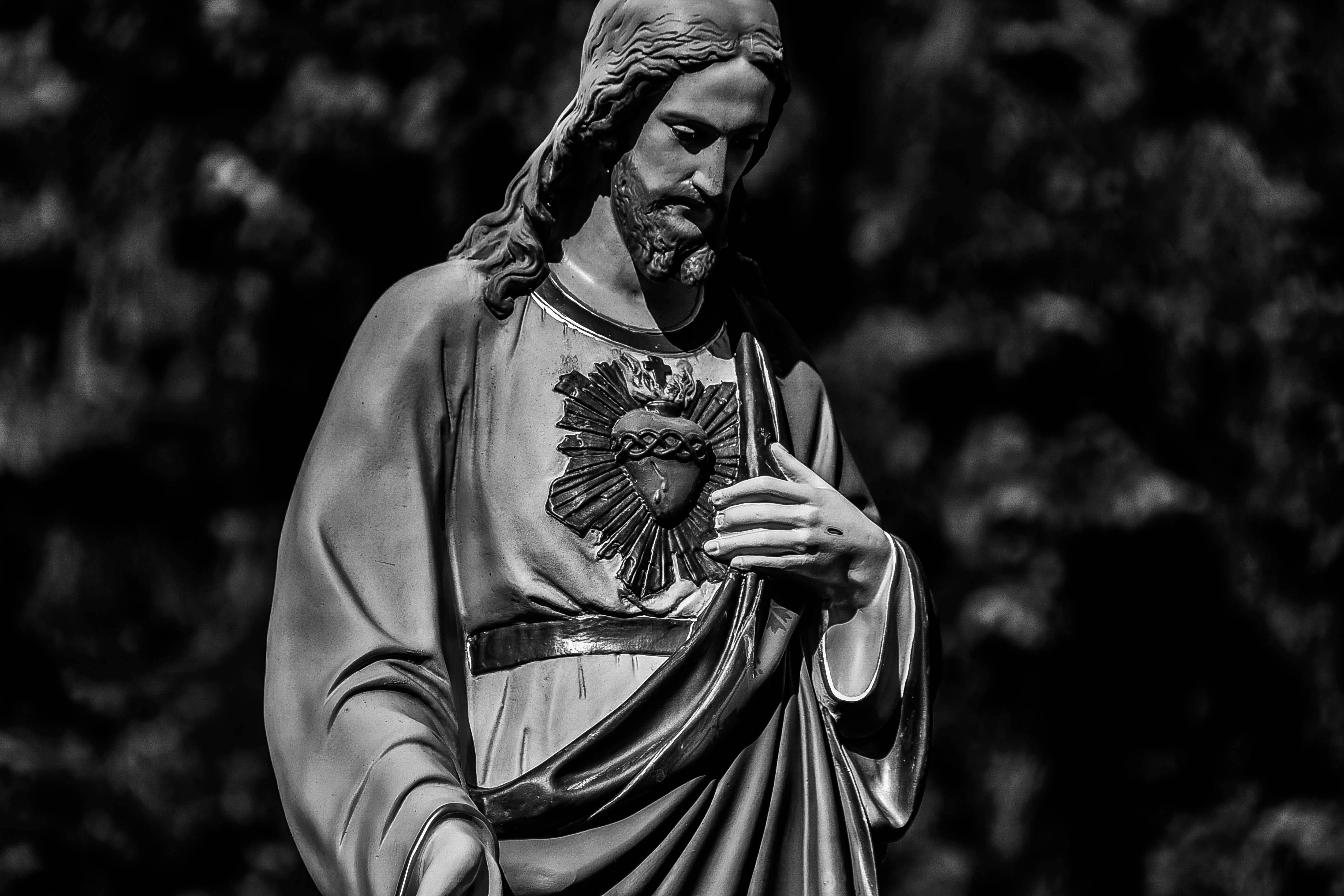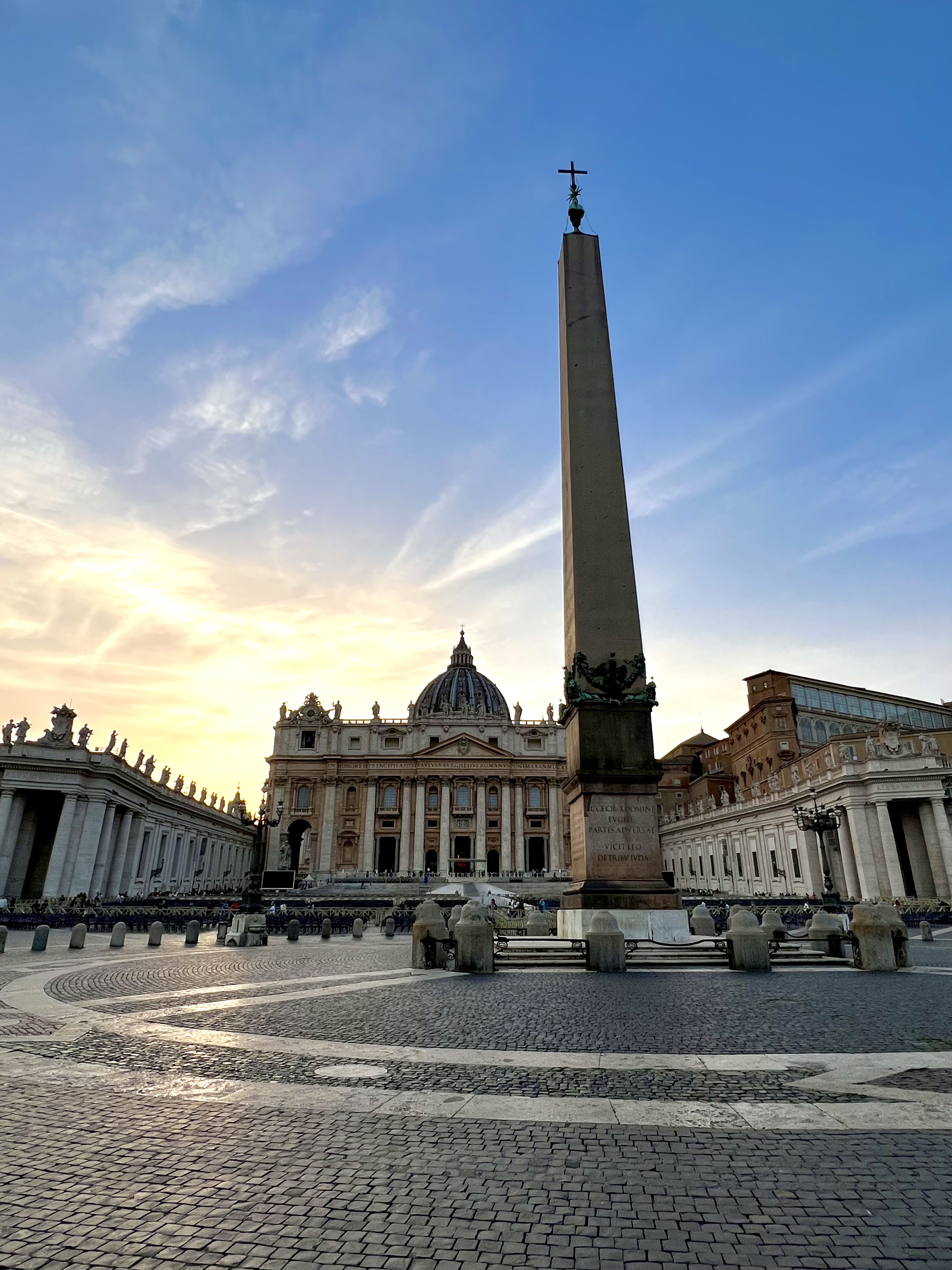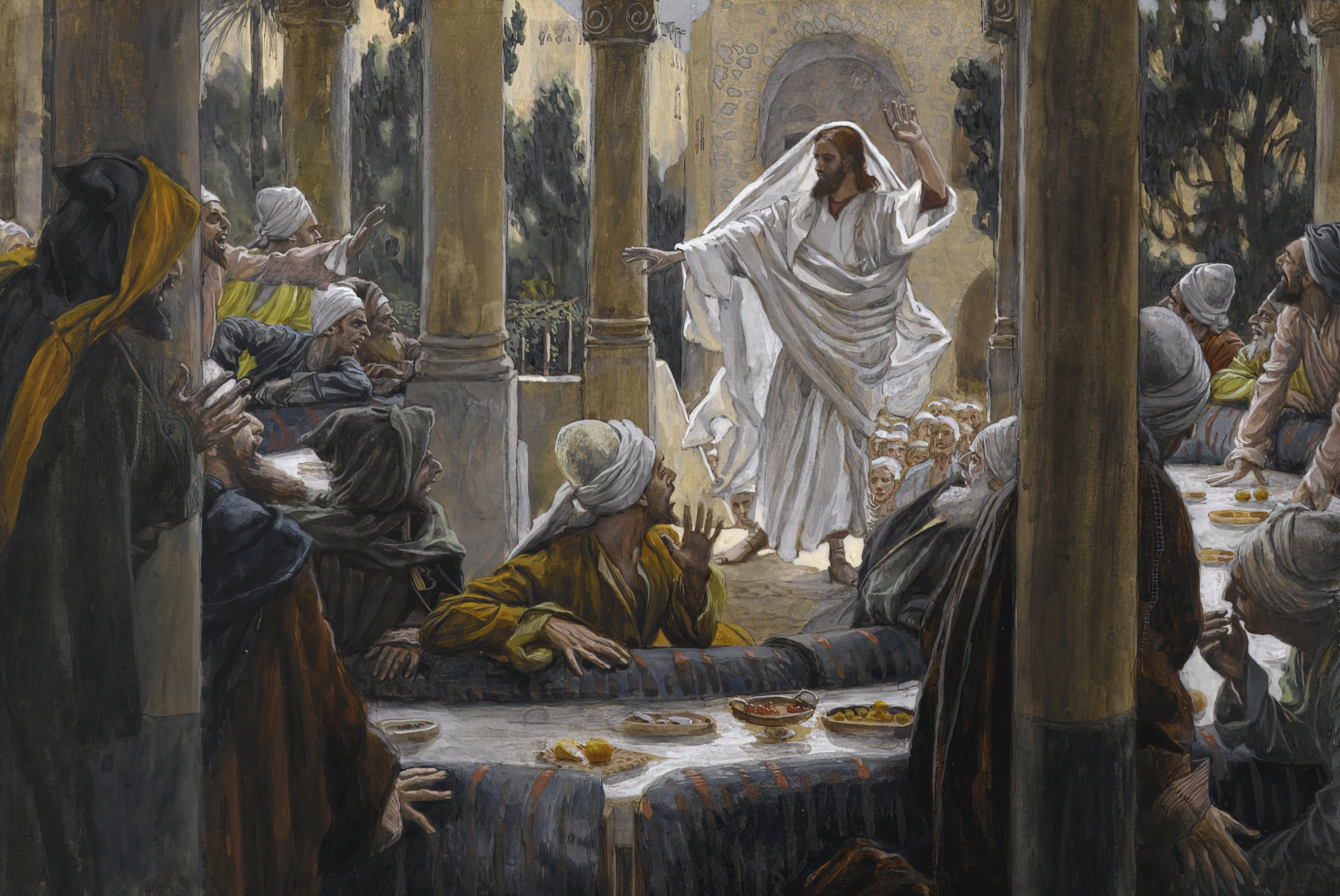Early this year I lost my mother-in-law after a lifetime of illness. It was the autoimmune disease, IBM, that finally ended her life too soon. I prayed over her, and perhaps the Lord did heal her in mind, body, and soul in ways we cannot know. Yet, we saw no evidence of healing and her story was not like our Gospel today where the once vibrant woman got up and did what she did best- serve her family with love and joy.
How often do we read Biblical accounts such as this and wonder, why them and not us? Is my faith not even the size of a mustard seed so as to work signs and wonders?
I firmly believe that God reveals Himself as healer from the beginning, bringing chaos to order after The Fall, and beyond the time of today’s Gospel reading. He seems to want nothing more than the restoration of our full mind, body, and soul so that we may be completely united to Him. Yet, why some and not others? I’ve been praying over my sickly husband since I’ve known him. Will he also die too soon? Should we put all of our strength into believing in miracles or accept his fate? Oh, my Lord, what do you have to say?
“I must proclaim the good news of the kingdom of God, because for this purpose I have been sent” (Luke 4:43). Healing is part of Jesus’ plan of salvation for the Church. The sacraments affirm this. It is inherent to the evangelical lifeblood of the Church, flowing out to all, throughout all time.
Again, why some and not others? I do not know, but I can attest to the fact that the sufferings of my mother-in-law and husband have brought about the healing of very wounded souls that never would have happened otherwise. My faith and reliance upon God through this are transforming areas of my life that I never would have expected. My father-in-law is also undergoing substantial metanoia since his wife’s passing.
It may not be the healing we were looking for, but it is healing and good news nonetheless. Jesus’ news is always good regardless of our desired outcomes. My heart is full knowing that Jesus “is the Son of God” (Luke 4:41) and my joy is truly complete!
A principios de este año falleció mi suegra tras una enfermedad de por vida. Fue una enfermedad autoinmune (IBM) que finalmente terminó su vida demasiado pronto. Oré por ella, y quizás el Señor la sanó en mente, cuerpo y alma de maneras que desconocemos. Sin embargo, no vimos ninguna evidencia de sanación, y su historia no se parecía a la del Evangelio de hoy, donde la mujer, anteriormente llena de energía, se levantó e hizo lo que sabía hacer mejor: servir a su familia con amor y alegría.
¿Con qué frecuencia leemos relatos bíblicos como este y nos preguntamos por qué ellos sí y no nosotros? ¿Acaso mi fe ni siquiera es del tamaño de un grano de mostaza para obrar señales y prodigios?
Creo firmemente que Dios se revela como sanador desde el principio, ordenando el caos después de la Caída y más allá del tiempo de la lectura del Evangelio de hoy. Parece que tiene un profundo deseo de restaurar nuestra mente, cuerpo y alma para que podamos estar completamente unidos a Él. Sin embargo, ¿por qué algunos sí y otros no? He estado orando por mi esposo enfermizo desde que lo conozco. ¿Él también va a morir demasiado pronto? ¿Deberíamos poner todas nuestras fuerzas en creer en milagros o rendirnos a aceptar su destino? Oh, Señor mío, ¿qué quieres decirme sobre todo esto?
“[T]engo que anunciarles el Reino de Dios…pues para eso he sido enviado” (Lucas 4,43). La sanación es parte del plan de salvación de Jesús para la Iglesia. Los sacramentos lo confirman. Es inherente a la esencia evangélica de la Iglesia, que fluye a todos, a lo largo de los tiempos.
De nuevo, ¿por qué a algunos sí y a otros no? No lo sé, pero puedo dar fe de que los sufrimientos de mi suegra y mi esposo han propiciado la sanación de almas muy heridas, algo que de otro modo nunca habría sucedido. Mi fe y mi confianza en Dios a través de esto están transformando áreas de mi vida que nunca hubiera esperado. Mi suegro también está pasando por una profunda metanoia desde que falleció su esposa.
Puede que no sea la sanación que buscábamos, pero aun así es sanación y una buena noticia. La noticia de Jesús siempre es buena, independientemente del resultado que deseamos. Mi corazón se llena al saber que Jesús es “el Hijo de Dios” (Lucas 4,41) y mi alegría es verdaderamente plena.
 Former NPS Park Ranger, Catholic educator, and Youth Minister, Melissa Lucca now spends her days evangelizing family and neighbors as a stay-at-home mom. She holds an MA in Theology from the Augustine Institute and pursues personal study in her spare time. Melissa loves Ignatian Spirituality, Mother Mary, and rock climbing. If you don’t hear her and her kiddo laughing at home, then they are probably out on an adventure!
Former NPS Park Ranger, Catholic educator, and Youth Minister, Melissa Lucca now spends her days evangelizing family and neighbors as a stay-at-home mom. She holds an MA in Theology from the Augustine Institute and pursues personal study in her spare time. Melissa loves Ignatian Spirituality, Mother Mary, and rock climbing. If you don’t hear her and her kiddo laughing at home, then they are probably out on an adventure!
Feature Image Credit: Kent Pilcher, unsplash.com/photos/selective-focus-photography-of-plant-87MIF4vqHWg
The views and opinions expressed in the Inspiration Daily blog are solely those of the original authors and contributors. These views and opinions do not necessarily represent those of Diocesan, the Diocesan staff, or other contributors to this blog.


 Tami Urcia is a midwestern gal from a large Catholic family. As a young adulthood she was a missionary in Mexico, where she studied theology and philosophy. After returning stateside bilingual, she gained a variety of work experience, traveled extensively and finished her Bachelor’s Degree at Brescia University. She loves organizing and simplifying things, watching her children play sports, deep conversations with close family and friends and finding unique ways to brighten others’ day with Christ’s love. She works full time at Diocesan in the Software Department and manages the Inspiration Daily reflections. She is also a contributing writer on
Tami Urcia is a midwestern gal from a large Catholic family. As a young adulthood she was a missionary in Mexico, where she studied theology and philosophy. After returning stateside bilingual, she gained a variety of work experience, traveled extensively and finished her Bachelor’s Degree at Brescia University. She loves organizing and simplifying things, watching her children play sports, deep conversations with close family and friends and finding unique ways to brighten others’ day with Christ’s love. She works full time at Diocesan in the Software Department and manages the Inspiration Daily reflections. She is also a contributing writer on 
 David Dashiell is a freelance author and editor in the Nashville, Tennessee area. He has three children, a degree in theology, and enjoys writing about philosophy, theology, culture, music, and comedy. You can find his personal blog, Serious Daydreams, on
David Dashiell is a freelance author and editor in the Nashville, Tennessee area. He has three children, a degree in theology, and enjoys writing about philosophy, theology, culture, music, and comedy. You can find his personal blog, Serious Daydreams, on 
 Kathryn Mulderink, MA, is married to Robert, Station Manager for Holy Family Radio. Together they have seven children (including Father Rob), and eleven grandchildren. She is President of the local community of Secular Discalced Carmelites and has published five books and many articles. Over the last 30 years, she has worked as a teacher, headmistress, catechist, Pastoral Associate, and DRE, and as a writer and voice talent for Catholic Radio. Currently, she serves the Church by writing and speaking, and by collaborating with various parishes and to lead others to encounter Christ and engage their faith. Her website is
Kathryn Mulderink, MA, is married to Robert, Station Manager for Holy Family Radio. Together they have seven children (including Father Rob), and eleven grandchildren. She is President of the local community of Secular Discalced Carmelites and has published five books and many articles. Over the last 30 years, she has worked as a teacher, headmistress, catechist, Pastoral Associate, and DRE, and as a writer and voice talent for Catholic Radio. Currently, she serves the Church by writing and speaking, and by collaborating with various parishes and to lead others to encounter Christ and engage their faith. Her website is 
 Hailing from Nashville, Catherine is a graduate of Christendom College with a lifelong passion for words. Her love of writing and her Catholic Faith continue to shape her as a freelance editor, copywriter, and (aspiring) novelist, where she pursues her passions for the love and greater glory of God.
Hailing from Nashville, Catherine is a graduate of Christendom College with a lifelong passion for words. Her love of writing and her Catholic Faith continue to shape her as a freelance editor, copywriter, and (aspiring) novelist, where she pursues her passions for the love and greater glory of God.

 Elizabeth Tomlin is the author of Joyful Momentum: Building and Sustaining Vibrant Women’s Groups and contributing author to the Ave Prayer Book for Catholic Mothers. She is General Counsel for the Archdiocese for the Military Services, USA. Elizabeth is an Army wife and mother of three and currently lives in Oklahoma. You can find her at @elizabethannetomlin on social media and she blogs at
Elizabeth Tomlin is the author of Joyful Momentum: Building and Sustaining Vibrant Women’s Groups and contributing author to the Ave Prayer Book for Catholic Mothers. She is General Counsel for the Archdiocese for the Military Services, USA. Elizabeth is an Army wife and mother of three and currently lives in Oklahoma. You can find her at @elizabethannetomlin on social media and she blogs at 
 Felix Urcia was born in Lima, Peru. He moved the U.S. to complete his college degree in Computer Science at Northern Kentucky University. He is passionate about his faith, his family, education and soccer. When he is not homeschooling and caring for his young children he enjoys personal programing projects and sports analysis. He and wife live in a small town in Western Michigan where they enjoy spending time with their five children.
Felix Urcia was born in Lima, Peru. He moved the U.S. to complete his college degree in Computer Science at Northern Kentucky University. He is passionate about his faith, his family, education and soccer. When he is not homeschooling and caring for his young children he enjoys personal programing projects and sports analysis. He and wife live in a small town in Western Michigan where they enjoy spending time with their five children.
 Lily is a Michigan native and cradle Catholic who has spent most of her life exploring her own reasons to embrace her faith fully. She attended Franciscan University of Steubenville, where she discovered the beauty of her personal relationship with Christ and the Church. After college, she worked in Montessori Education for three years and recently transitioned to nannying. She was recently married and spends most of her time reading, and enjoying her dog and family!
Lily is a Michigan native and cradle Catholic who has spent most of her life exploring her own reasons to embrace her faith fully. She attended Franciscan University of Steubenville, where she discovered the beauty of her personal relationship with Christ and the Church. After college, she worked in Montessori Education for three years and recently transitioned to nannying. She was recently married and spends most of her time reading, and enjoying her dog and family!
 Pamela Kavanaugh is a grateful wife, mother, and grandmother who has dedicated her professional life to Catholic education. Though she has done her very best to teach her students well in the subjects of language and religion, she knows that she has learned more than she has taught. She lives, teaches, and writes in southwest suburban Chicago.
Pamela Kavanaugh is a grateful wife, mother, and grandmother who has dedicated her professional life to Catholic education. Though she has done her very best to teach her students well in the subjects of language and religion, she knows that she has learned more than she has taught. She lives, teaches, and writes in southwest suburban Chicago.


